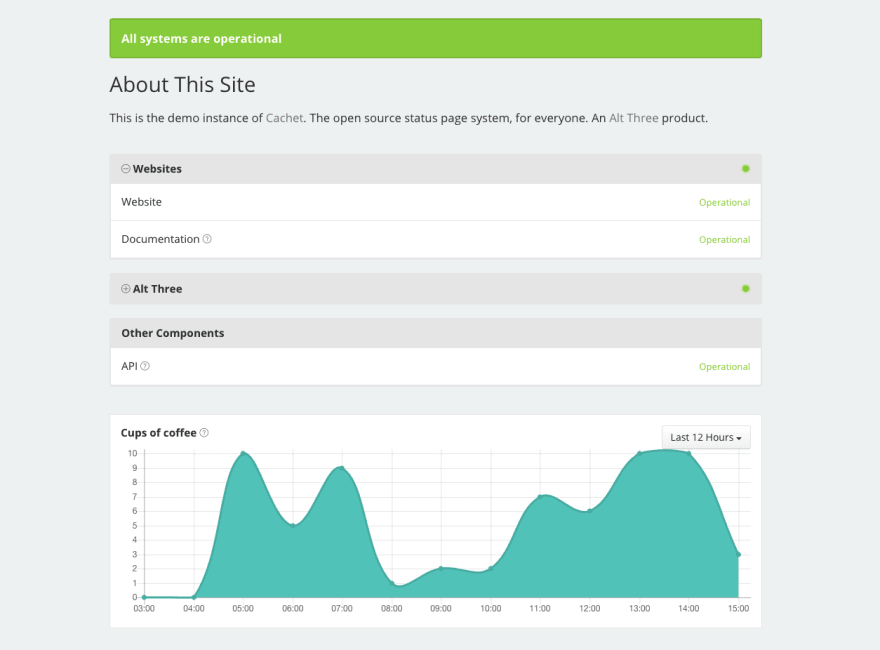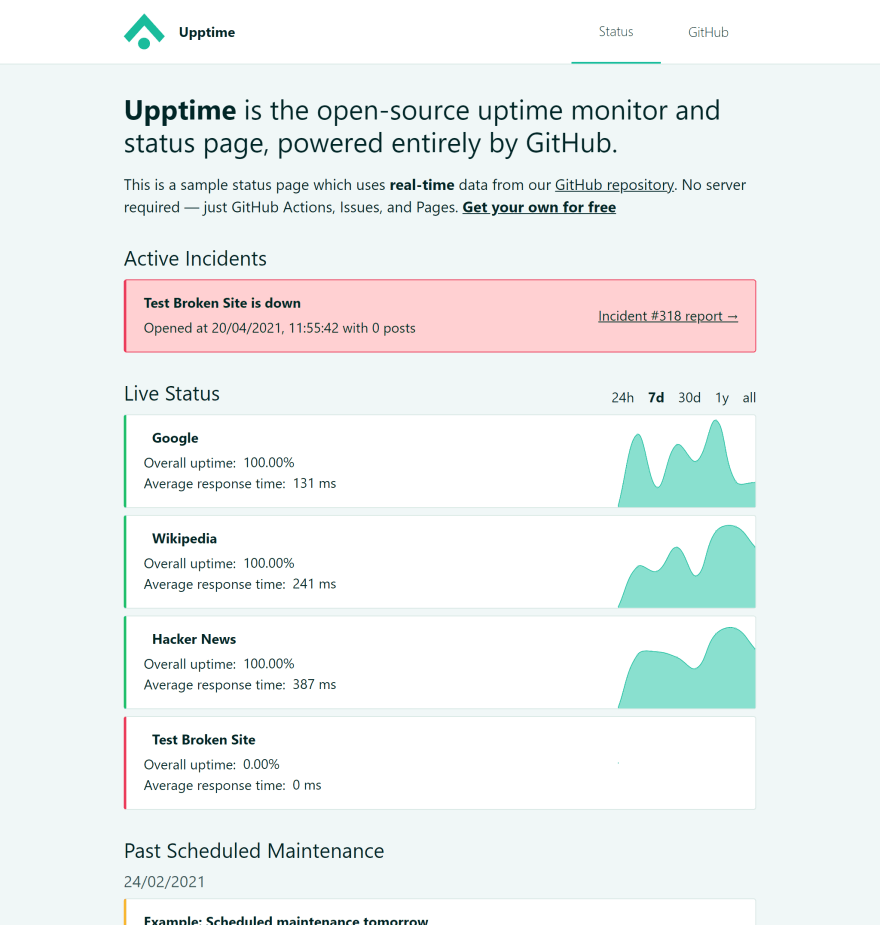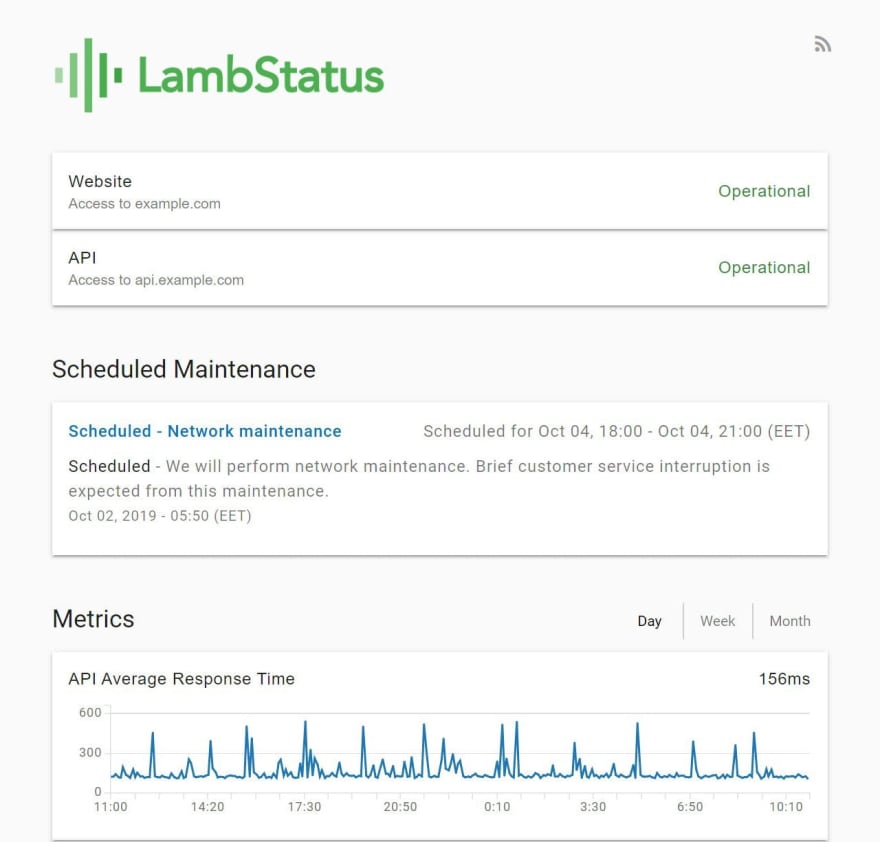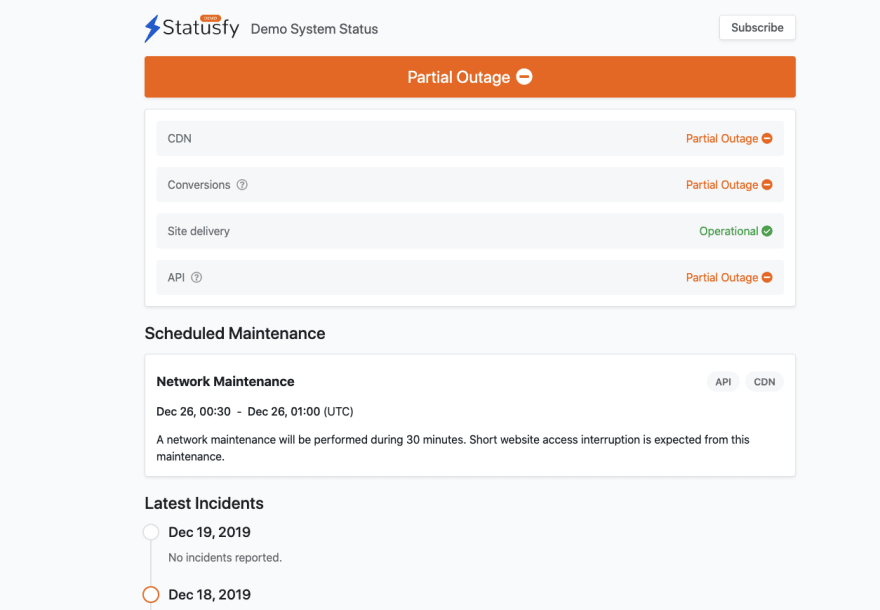Having a status page is essential. If something happens, you're going to have a place where users can go and find information on what's going on and what to expect.
Here's a list of 4 hand-picked open-source status page tools you can use to stay in touch with your customers during downtimes.
Cachet
Cachet offers responsive status pages which are easy to understand. Cachet is a well-built solution if you're looking to create and manage status pages. As a bonus, you can easily integrate with their API and customize it for your needs.
Moreover, users and other stakeholders have the option of scheduling maintenance and being notified quickly.
Anyone seeking extra security will appreciate that Cachet supports two-factor authentication, which is compatible with Google Authenticator.
Benefits include:
- Any metric can be displayed in a chart
- Supports two-factor authentication
Upptime
Upptime provides users with a cost-effective, hassle-free solution to carry out processes on their repos on an automated schedule. A 5-minute interval is the shortest that can be allowed.
According to Upptime, the status page updates every five minutes based on automatic website checking.
Upptime is a real-time site monitor that provides fast and detailed insights into your site's response time and uptime. Upptime offers several options for customizing your site, including the ability to change the logo, copy, and graphs.
If you're looking for a tool that can help your company run smoothly and allow you to focus on more important things, you should check out Overall Upptime.
Benefits include:
- Works reliably with GitHub Actions
- Excellent design and many customization options
LambStatus
LambStatus is a revolutionary new way to host status pages. Rather than paying a fixed monthly cost for hosting, you pay only when someone uses your status page by hosting it on Amazon AWS.
Benefits include:
- You only pay for what you use.
- Good admin dashboard.
- Metrics can be integrated.
Statusfy
Statusfy is another tool that could be useful if you need to announce something in advance. Statusfy provides different incident status announcements with tagging, timestamps, categories, and timelines, unlike other tools on this list. Using a status page as a primary way to communicate with your users comes in handy when you want to use it.
Statusfy does not provide charts, which is a significant drawback if you wish to broadcast uptime or incidents data.
Additionally, there are few options for subscribing to the notifications, with only Web Push, iCalendar, and Twitter.
Benefits include:
- Optional advanced announcements
You might also consider these open-source tools:
Feel free to check out this list from awecomeopensource if you want to explore more tools. You might not be able to use some of the tools on this list commercially because they are no longer maintained.
Are you unsure about open-source options?
It is possible to create a nice status page with many open-source program options. In addition, there are a few free and comprehensive hosted solutions worth considering. Let's have a look at some status page providers that offer a status page on their basic cheap or even free plans:
Odown

Using Odown, you get real-time status updates, uptime monitoring, and incident management in one intuitive interface.
The status page is available from the basic cheap plan and can even be published to a custom subdomain with HTTP (s).
Getting a status page quickly and for free is one of the best things about Odown. Uptime monitoring and incident management is a bonus, which is handy if you want to avoid costly dedicated uptime monitoring solutions.
Main benefits:
- Beautiful status page design for all users on a custom domain
- Uptime monitoring built-in
- Incident Management build-in ( coming soon )
- SSL monitoring
And other providers like :
- Atlassian Statuspage
- Better uptime
- Instatus







Top comments (0)